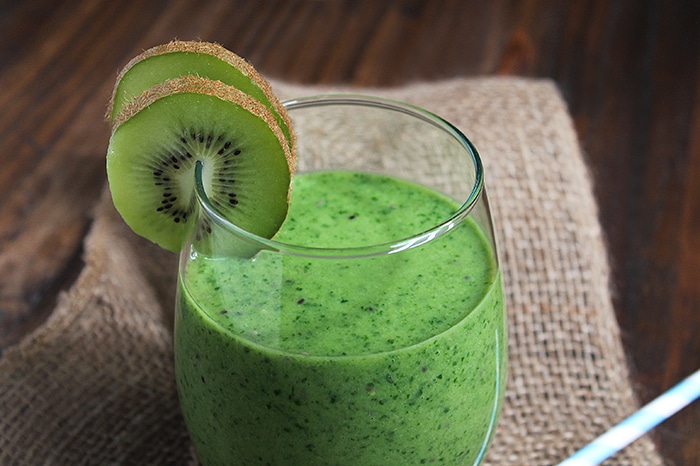
Vitamin E: What is it and what does it do?
Vitamin E represents a family of eight fat-soluble antioxidant vitamins. Each form has its own function. Alpha-tocopherol is the most important E vitamin in humans. Vitamin E is involved in maintaining cell integrity and protects vitamin A and essential fatty acids from oxidation in the body cells.
Table of Contents
How much do I need to consume?
The Recommended Dietary Allowance (RDA) for vitamin E is based on the alpha-tocopherol form. The recommendations below are in milligrams (mg) and International Units (IU). You can use the milligrams when looking at the content of food and the International Units when looking at the content of supplements.
The RDA for vitamin E is:
|
Age
|
Males and Females
|
Pregnancy
|
Lactation
|
|
1 to 3 years
|
6 mg (9 IU)
|
N/A
|
N/A
|
|
4 to 8 years
|
7 mg (10.5 IU)
|
N/A
|
N/A
|
|
9 to 13 years
|
11 mg (16.5 IU)
|
15 mg (22.5 IU)
|
19 mg (28.5 IU)
|
|
14 + years
|
15 mg (22.5 IU)
|
15 mg (22.5 IU)
|
19 mg (28.5 IU)
|
There is insufficient information to establish an RDA for this vitamin for infants. In this case, an Adequate Intake (AI) has been established:
|
Age
|
Males and Females
|
|
0 to 6 months
|
4 mg (6 IU)
|
|
7 to 12 months
|
5 mg (7.5 IU)
|
What are the sources of it?
|
Food
|
Amount
|
Vitamin E Alpha-tocopherol
|
|
Almonds, dry roasted
|
1 oz
|
7.4 mg
|
|
Broccoli, frozen, cooked
|
½ cup
|
1.2 mg
|
|
Corn oil
|
1 tablespoon
|
1.9 mg
|
|
Egg
|
1 large
|
5.3 mg
|
|
Kiwi, no skin
|
1 medium
|
1.1 mg
|
|
Mango, raw
|
½ cup sliced
|
0.9 mg
|
|
Peanut butter, smooth style, fortified
|
2 tablespoons
|
4.2 mg
|
|
Safflower oil
|
1 tablespoon
|
4.6 mg
|
|
Soybean oil
|
1 tablespoon
|
1.3 mg
|
|
Spinach, frozen, cooked
|
½ cup
|
1.6 mg
|
|
Spinach, raw
|
1 cup
|
0.6 mg
|
|
Sunflower oil
|
1 tablespoon
|
5.6 mg
|
|
Sunflower seed kernels, dry roasted
|
1 oz
|
6.0 mg
|
|
Wheat germ oil
|
1 tablespoon
|
20.3 mg
|
Do I need to take a vitamin E supplement?
Most research shows that we do not consume adequate vitamin E, but a deficiency is rare. According to the USDA, vitamin E intake by women 19 to 50 years is less than 90% of the RDA. The average consumption for American adults is 7 to 9 mg compared to the recommended 15 mg. There is, however, a possibility that we are consuming more than we think.
Many people underreport their fat intake, so there is a chance that you are reaching your recommended amount of vitamin E if you do consume a large amount of the oils that contain it. Unfortunately, the amount of oil it would take to reach the recommendations is high, and with that comes a lot of calories. It would be best to consume a variety of foods that contain vitamin E with limited amounts of oil and take a supplement for what you are missing.
There is some evidence that vitamin E supplements help protect against heart disease, but this evidence is controversial. In a study of approximately 90,000 nurses, the incidence of heart disease was 30%-40% lower in those with the highest intake of vitamin E from supplements, not from food. This study was looking at what happened to these nurses without any kind of intervention. The studies that gave people vitamin E supplements have not seen any protection against heart disease. The reason for the difference is still unclear, so more research is being done to determine what role vitamin E plays in protecting against heart disease. Currently, the American Heart Association does not recommend antioxidant vitamins — including vitamin E — to prevent cardiovascular disease.
Some cancers develop from oxidation damage to DNA. In the Alpha-Tocopherol Beta-Carotene (ATBC) study, scientists found a 32% reduction in the incidence of prostate cancer among subjects taking alpha-tocopherol supplements compared to those not taking the vitamin. However, several studies have found no benefit of vitamin E in preventing lung and breast cancers. More randomized controlled trials are needed to determine the effect of vitamin E on cancer risks.
Alzheimer’s disease is a degenerative brain disease with progressive mental capacity loss, thought partly to be due to oxidation. In one study, high doses of alpha-tocopherol supplementation slowed the progression of Alzheimer’s disease. Although these results are promising, large-scale placebo-controlled prospective trials will be required to determine the role of a-tocopherol supplementation in treating Alzheimer’s disease.
When purchasing vitamin E supplements, you will see that they are often sold as alpha-tocopheryl acetate. This form of alpha-tocopherol protects its ability to function as an antioxidant. A “DL” on the label means that it is the synthetic form and is about half as active as the natural form, which is listed as “D.”
What happens if I don’t have enough vitamin E?
Dietary vitamin E deficiency is common in developing countries and among people with fat-malabsorption diseases. The main symptoms are hemolytic anemia and neurologic deficits.
Is there such a thing as too much vitamin E?
Vitamin E can act as an anticoagulant, increasing the risk of bleeding problems. This means that people taking warfarin (Coumadin) should not take vitamin E supplements without their doctor’s approval. The Tolerable Upper Limit (UL) was set at the highest dose, unlikely to result in bleeding problems. There are UL set for vitamin E:
|
Age
|
Males and Females
|
Pregnancy
|
Lactation
|
|
1 to 3 years
|
200 mg (300 IU)
|
N/A
|
N/A
|
|
4 to 8 years
|
300 mg (450 IU)
|
N/A
|
N/A
|
|
9 to 13 years
|
600 mg (900 IU)
|
N/A
|
N/A
|
|
14 to 18 years
|
800 mg (1,200 IU)
|
use 800 mg (1,200 IU)
|
800 mg (1,200 IU)
|
|
19+ years
|
1,000 mg (1,500 IU)
|
use 1,000 mg (1,500 IU)
|
1,000 mg (1,500 IU)
|






